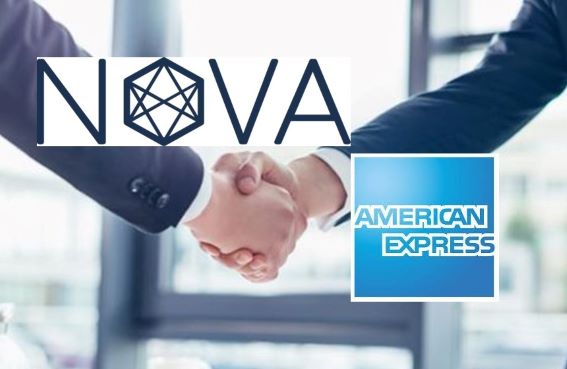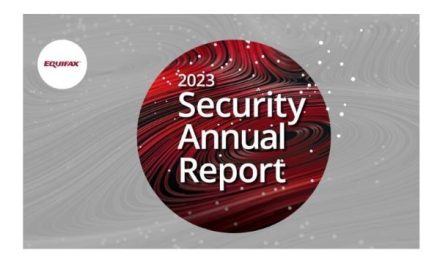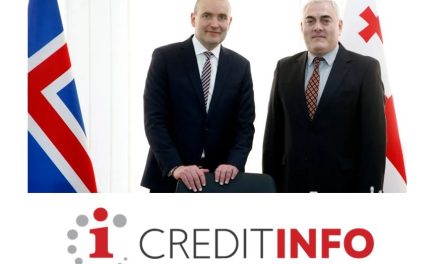Being an immigrant or expat in the United States means more than just coming to a new country to start a new life. It also means having to completely rebuild a credit history, which is not an easy task. Nova Credit and American Express are teaming up to change that.
Nova Credit announced a significant new partnership with American Express to help non-natives get approved for credit cards in the U.S. The deal could enable immigrants from Australia, Canada, India, Mexico and the United Kingdom to quickly obtain an American credit card even if they haven’t yet built up any U.S. credit histories. Eventually, immigrants from other countries could be helped too.
The partnership is a first of its kind, bringing global credit histories together with the United States’ largest credit issuer.
How Nova Credit Is Bringing Foreign Credit Histories into The U.S. Market
A common shock to most newcomers in the U.S. is how long it can take them to build healthy credit histories. According to Nova, it can take immigrants and expats up to five years to build a credit history in the U.S. equivalent to the one they left behind in their homeland.
 “People don’t realize that they won’t be able to get access to credit when they come to this country,” says Sarah Davies, Head of Risk & Analytics at Nova Credit. “I’ve lived in five different countries throughout my career and I didn’t realize until probably the third country that this was kind of a consistent problem.”
“People don’t realize that they won’t be able to get access to credit when they come to this country,” says Sarah Davies, Head of Risk & Analytics at Nova Credit. “I’ve lived in five different countries throughout my career and I didn’t realize until probably the third country that this was kind of a consistent problem.”
The process of transferring credit over or starting over can be long, complicated and strenuous on consumers. Nova Credit, a pick on the Forbes 2019 Fintech50 List, simplifies and speeds up the process exponentially with its Credit Passport technology.
The cross-border credit bureau buys credit data from foreign credit bureaus and then creates a Nova Credit Passport, which contains an individual’s payment, inquiry and address histories. After taking those factors into consideration to determine risk, Nova then assigns the individual a number that is designed to be equivalent to a U.S. credit score.
Under the new partnership, Nova will be providing its Credit Passports from five countries—Australia, Canada, India, Mexico and the United Kingdom—to American Express. The companies expect the partnership to eventually expand into other markets, but declined to provide further detail as to where and when.
Nova Credit is currently able to purchase credit data from nine markets: the five in the Amex partnership and South Korea, Brazil, Nigeria and China. The startup expects to add information from Jamaica, Kenya, Dominican Republic and the Philippines in the next quarter.
American Express and Nova Credit told Forbes they estimate as many as 2.5 million immigrants coming to the U.S. each year. Most of them are highly creditworthy borrowers coming here for school or high-powered jobs, the companies added. The five markets included in the initial partnership represent around one-third of the 2.5 million newcomers, according to Sara Milsten, SVP of New Member Acquisition for U.S. Consumer Services at American Express.
The process of tapping Nova Credit information will be integrated directly into the regular American Express application process. Applicants need typical application information like their phone number, address, email, income and assets information. Those who opt for the additional Nova Credit check will be asked to authorize the company to pull their credit report from their country of origin and will be asked for information to further verify their identity. (Verification processes and thus the questions they’ll be asked vary by country.)
What is particularly notable is that in most cases a credit card decision will be granted almost instantly, and those approved will have the option to receive an instant card number while they wait for their actual credit card to arrive in the mail. (In other words, the credit check process is designed to work almost as quickly as it does for native Americans.)
A Major Change to the Credit Invisible Space
Transferring over credit histories from other countries has been difficult, especially when it comes to translating them into similar U.S. frameworks that underwriters can understand.
Davies says the fundamentals of consumer behaviors are important regardless of where they’re coming from, in terms of the predictiveness of a credit score. If they’re good borrowers in their home country, they’ll likely be good borrowers in the U.S., too. As a result, the scores aren’t equal—a 700 in Canada won’t equal 700 here—but the translations are close.
“We give the consumer the benefit of their credit capabilities,” Davies says. She gives the example of a 700 credit score in a country where it signifies a 5% level of default could translate into about a 650 here.
The partnership is a significant breakthrough for newcomers seeking credit in the U.S. Until now, there haven’t been many credit card options for new immigrants to the U.S. The Deserve Edu Mastercard doesn’t require a Social Security number, prior credit history, cosigner or deposit. U.S. fintech company Petal, with $34 million in funding, launched a card this fall aimed at consumers with little to no credit history at all.
Borrowers without credit histories (often referred to as “credit invisibles”), until now, had virtually no access to American Express’ network, which offers over a dozen consumer credit cards. The companies are now helping what they call “global citizens” start their new lives with a financial lifeline.
“It’s a highly fragmented problem, and it’s a challenge that exists country to country. The dynamics are different, the regulatory environments are different, and it’s complicated,” Milsten says. “When you put all of those things together, it’s a hard problem to solve, but we’re excited because we know it’s worthwhile.”
Source: Forbes.com


























